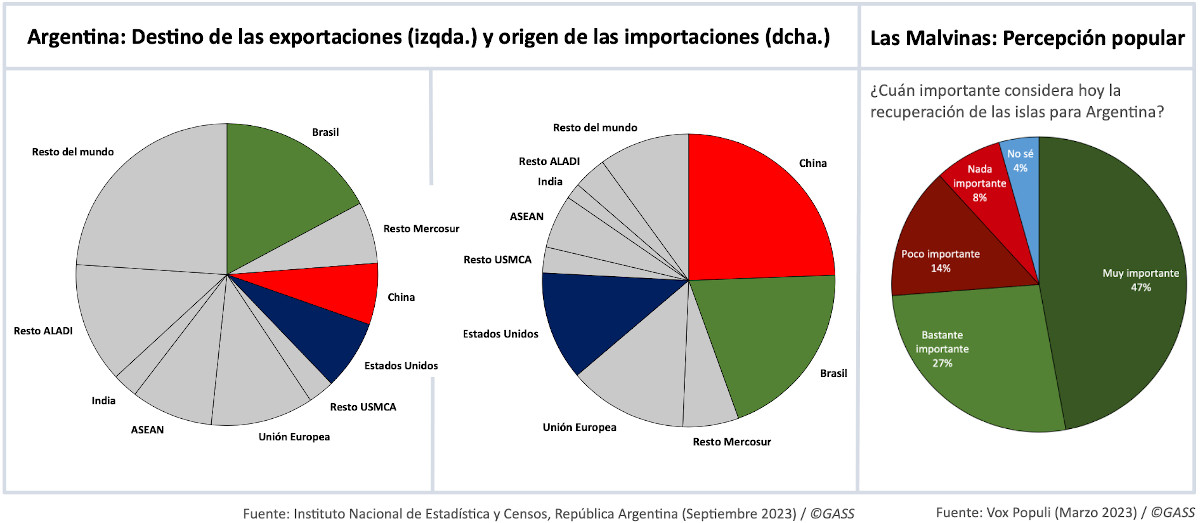In the picture
Javier Milei celebrates his victory in the second round, with about 56% of the votes
After an election marked initially by citizen insecurity and then by the difficult status In the midst of Argentina's economic crisis, Javier Milei comes to the presidency with a series of radical prescriptions that remain to be seen in what way they will be able to Degree Applies. In subject On foreign policy, Milei has not been very specific, beyond presenting himself as an 'anti-communist' crusader; while it will strengthen relations with the United States and Israel, it will also have to assume large doses of pragmatism, especially in economic relations with Brazil and China. His election adds fuel to the impetus of the Latin American left in the reactivation of CELAC and Unasur.
Although foreign policy played a residual role in Argentina's presidential election, the leading candidates hinted at their ambitions in debates, speeches and interviews. Issues such as the functionality of Mercosur, the role of China, the sovereignty of the Malvinas, or even relations with the Holy See came up on a recurring basis.
In general terms, Javier Milei's candidacy – through the presidential candidate of La Libertad Avanza (LLA) himself and his adviser Diana Mondino – maintained an ideological vision of international relations, marked by anti-communism and the rejection of governments "that do not respect the ideas of freedom". The new president expressed in the last discussion his intention to align Argentina with the United States, Israel and all those countries that belong to the "free world", as well as the institutional distancing with Brazil and China. The latter two countries are Argentina's current largest trading partners, so there is a risk that the new government's stance will harm those exchanges.
His first trip abroad as president-elect was to the United States, where he also maintained a close contact with part of the Jewish community, thus setting their priorities. In relation to Brazil, however, Milei seems to be taking a turn, with the invitation to Brazilian President Lula da Silva to his inauguration; It also has a pragmatic attitude in relation to trade with China, a country with which it can maintain political distance without damaging Argentine exports to that country. In any case, in line with his libertarian ideology, he has insisted on limiting the intervention of the State in commercial relations with the outside world, where he believes that the classic 'laissez faire' and the free action of private subjects should prevail.
In the election campaign, his direct opponent in the second round, the Peronist Sergio Massa, advised by Ambassador Gustavo Martínez Pandiani, defended a pragmatic vision of Argentina's relations with the world, included in his "Plan of Action". His proposal It was based on a line of continuity combined with some changes with a strong economic motivation. Basically, his coalition promoted the development of commercial alliances that would increase exports and attract investment and inbound tourism. In this regard, the strengthening of ties with Brazil and China as Argentina's main trading partners, the entrance in the BRICS alliance and further integration into Mercosur were the main objectives. On these matters, Milei openly disagreed with Massa.


